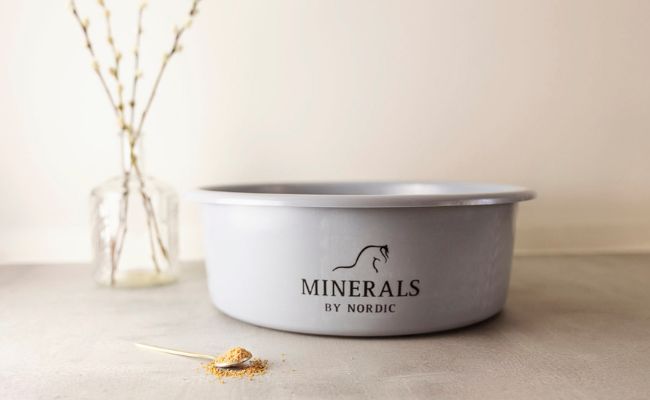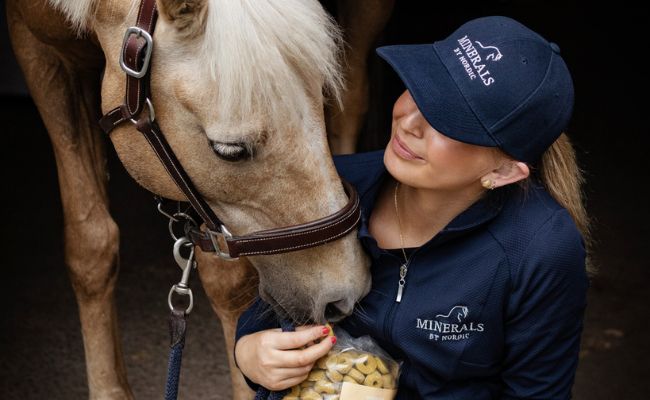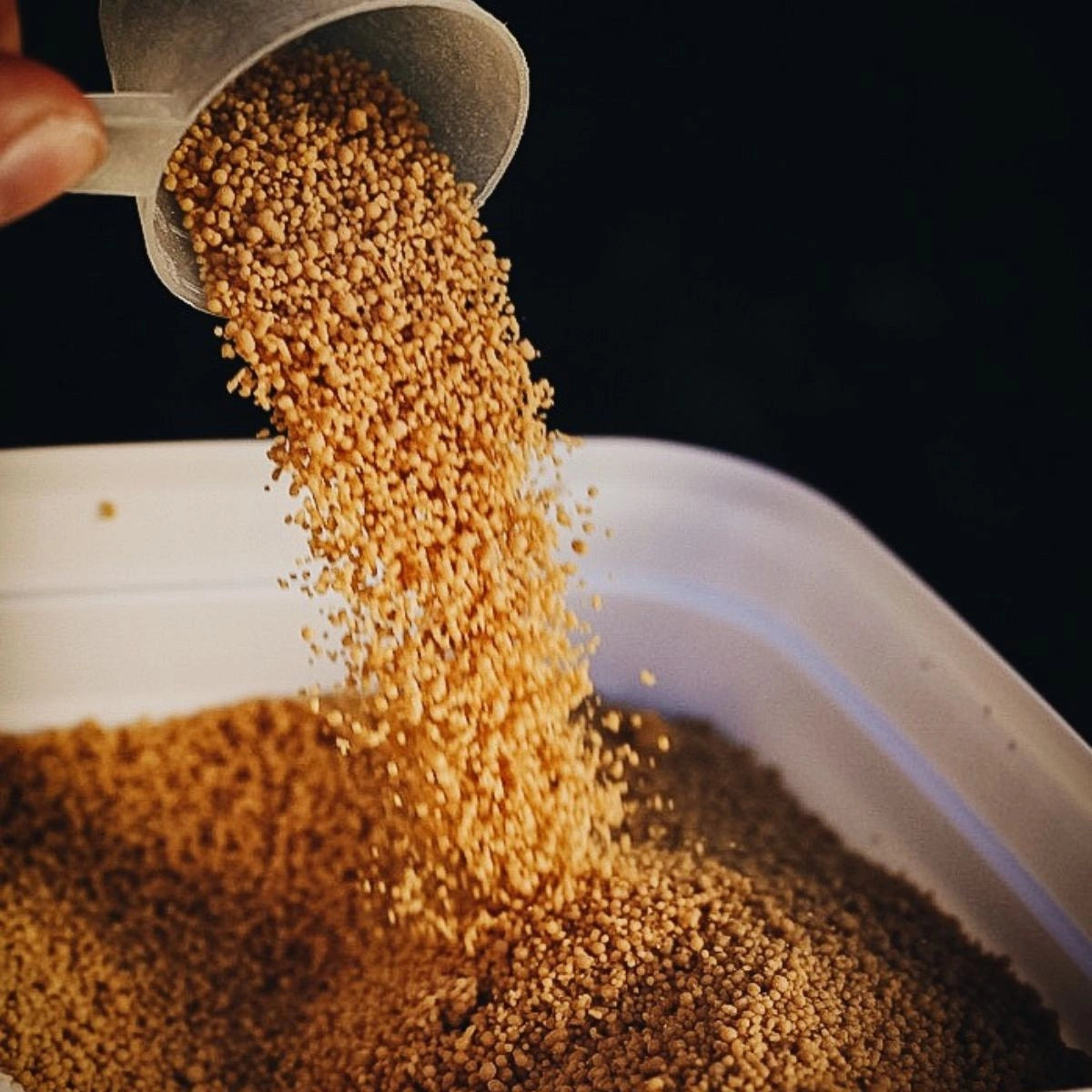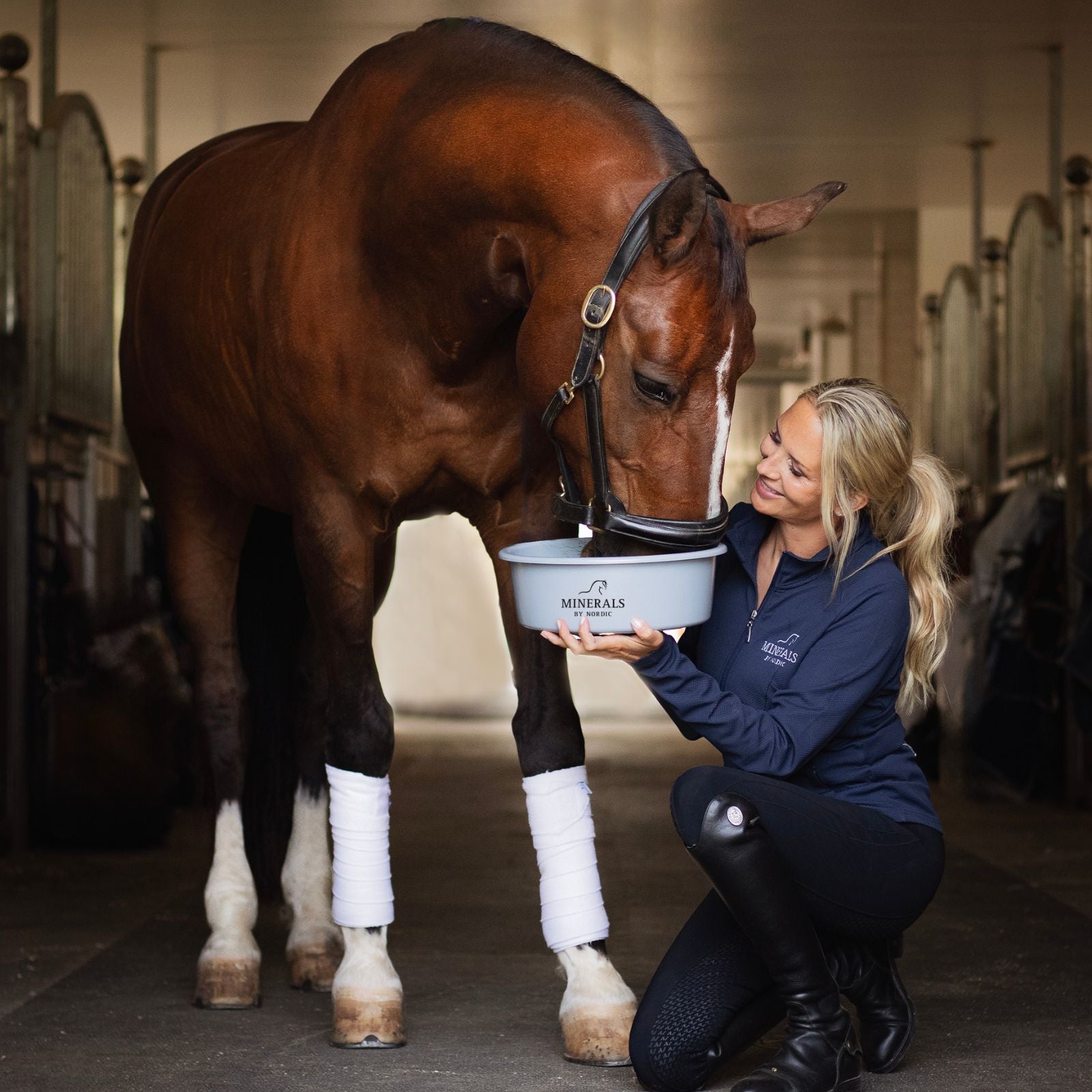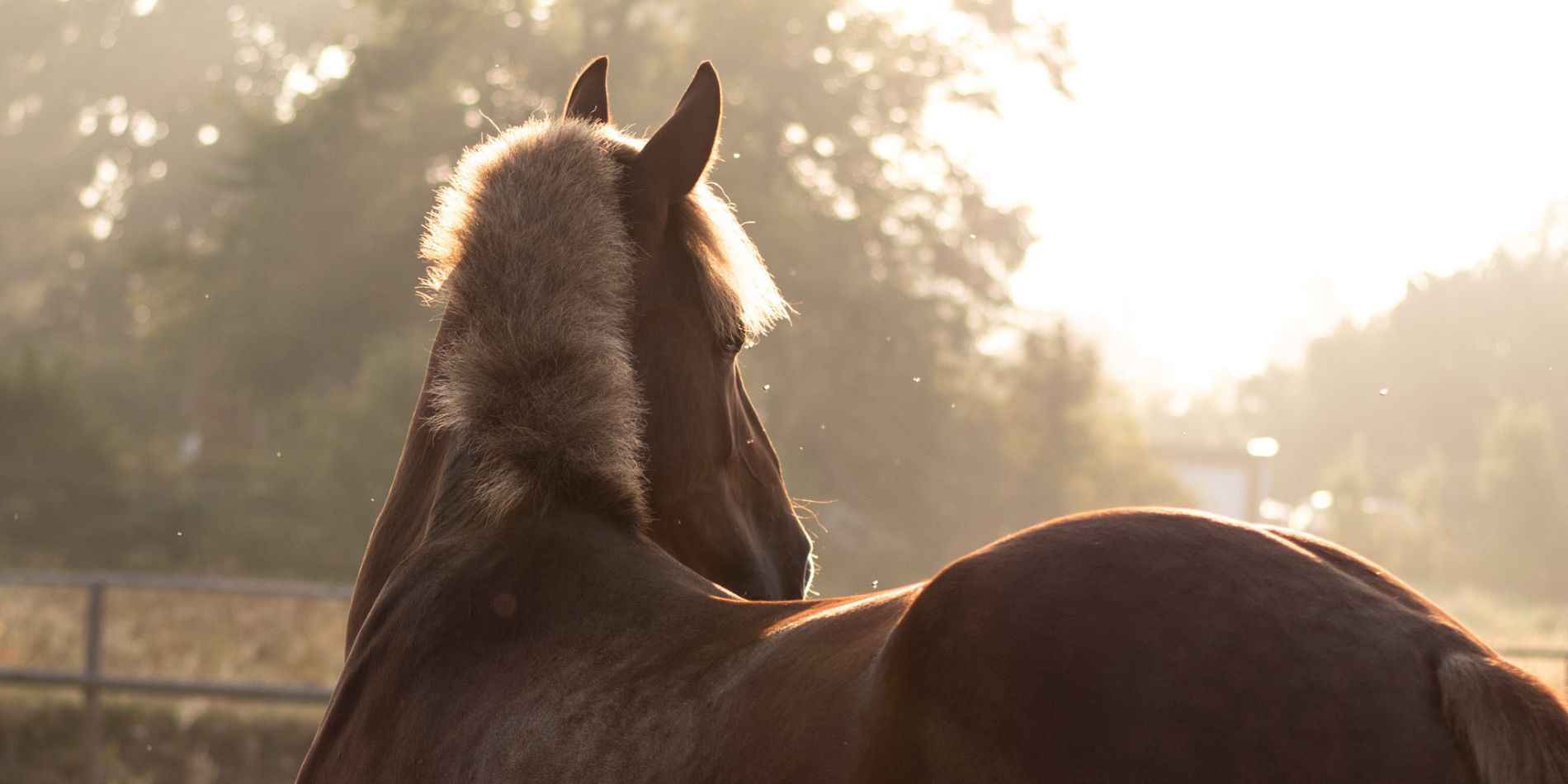
Balance the horse's stomach
An important factor in maintaining a horse's gastrointestinal health is controlled feeding. This means that the horse should ideally have access to a constant amount of forage, and that concentrated feed should be given in small amounts over several feeding sessions. This reduces the risk of overloading the stomach and intestines. Another important factor is that the horse has access to clean water and that the horse's water intake is regularly monitored. A horse that does not drink enough water can suffer from constipation or other gastrointestinal problems.
There are also feeds and supplements that can help maintain a horse's gastrointestinal health. Prebiotics and probiotics are examples of supplements that can support a healthy gut flora and thereby improve digestion. Certain feeds can also be specially formulated to promote healthy gastrointestinal function.
Checklist for better stomach and intestinal function in horses
◻︎ Water
The water that the horse drinks can, unfortunately, contain many different types of bacteria, residues, and leakage from infiltration wells and pesticides that can cause stomach reactions. When was the last time you checked the quality of the water the horses are drinking? Do the horses have access to unsuitable water outside? For example, water pools with leakage from infiltration wells or water from fields that are heavily sprayed with pesticides. If you take warm water from the tap and mix it with the horse's feed, this can also be a source of bacteria that the horse may react to.
◻︎ Roughage
We say it often, but roughage usually makes up the majority of a horse's diet. If you feed a forage that is, for example, affected by mold or is too wet, it can negatively impact the horse's stomach. Never put out an entire bale for the horses without first checking under the plastic to ensure it is free from mold.
◻︎ Environment, stress, medication
External factors can negatively affect the horse by causing too much stress, which impacts the stomach and intestinal system. Train and prepare your horse to handle various situations that cause stress so it can manage them better. It is also important to ensure that the stable environment is pleasant, calm, with good box neighbors, and not too long between feedings for optimal conditions. Additionally, review if the horse is on any medications that can negatively affect its stomach and intestines and take these into account.
◻︎ Hardfeed and supplements
This point often significantly affects many different types of horses that cannot break down and metabolize feeds and supplements based on a large amount of grains and various forms of sugar. Grain-free feed is not only good for horses with metabolic diseases but is also a good alternative for all horses. Horses have a limited digestive capacity for grains; they can only absorb a certain amount of starch at each feeding, which means that the excess goes undigested directly to the large intestine, lowering the pH level and impairing fiber breakdown. Providing more roughage and a smaller amount of grain-free feed is very beneficial for health and reduces the risk of colic and ulcers. By removing grain and molasses components from the horse's diet, you significantly reduce sugar and starch, which is also very beneficial for the stomach and intestines. The horse's digestive system is adapted to eating grass and roughage, which do not contain the same type of starch as grains.
Has your horse had stomach problems for a long time and you don't know where to start? Our advice is to review the checklist above. Under the point for concentrates and supplements, make sure to start adding feed with many different natural sources of prebiotics.
Product 1
Start with Höveler's Pur.mash; it is gentle on the stomach and contains several prebiotic substances that can contribute to stabilizing the colon flora. Linseed and psyllium seed protect the gastrointestinal tract with mucilaginous substances that can reduce the risk of acidosis and disturbances in the acid-base balance. This leads to better intestinal function, promoting the horse's well-being.
Product 2
Activ Mineral is not just a mineral product but also has a positive impact on the stomach and intestines. For example, magnesium is needed for enzymes in both the stomach and muscles to function properly. The algae meal in the product is important for the immune system, which is located in the stomach, and several studies have shown positive effects on gastrointestinal health. Read more about the research on algae meal here. Additionally, the product is rich in amino acids, which help the stomach by supporting its absorption capacity.
If you still experience stomach problems after following the checklist and using these two products for at least 3-4 weeks, you can look at additional support through one of the following products:
Inflaboost DHA - If the horse has been on a diet containing high levels of omega-6 fatty acids, such as from soy, corn, and rapeseed, but not enough omega-3 fatty acids, it can create an imbalance. Omega-6 increases inflammation, while omega-3 has anti-inflammatory properties. Therefore, it can be beneficial to give a course of Inflaboost DHA to balance the levels.
Psyllium seeds - A course of extra soaked psyllium seeds can be a good idea to try, as the seed has an outer "gel-like" husk that contains water-soluble fibers. In the stomach, these act as a bulking agent that can support the horse's intestinal mucosa in cases of loose stools, watery stools, hard stools, and horses that tend to colic easily. It can help expel sand from the intestines, which can lead to colic. The gel that forms has prebiotic properties for the horse's stomach and intestines.
Magen-Fit herbs- Gastrointestinal herbs are given as a course to support the horse with metabolic issues and watery stools. They are administered for 6 weeks, as the herbs have the strongest targeted effect during this period. Generally, they are not fed for longer because the purpose of the herbs should have been achieved, and the body should function independently again. In some cases, it may be necessary to extend the duration to a maximum of 12 weeks and adjust the dosage accordingly. After that, the body is meant to function on its own. The only time long-term feeding might be necessary is when the horse has a chronic problem. If a horse has a chronic problem, it is sometimes recommended to feed it continuously at half the dose to provide constant support to the stressed organ, but this is an individual adjustment made in certain cases. You can also give the herbs for 6 weeks, take a break for a couple of weeks, and then administer another course.
Mg Control - If your horse suffers from a lot of stress and tension that affects the stomach and intestines, the body uses a lot of magnesium. In that case, it can be beneficial to add Mg Controll, which is 100% magnesium oxide of the highest quality and purity. Do you need hardfeed for more protein and energy in the diet?
Höveler's hardfeeds are all grain-free and have multiple sources of prebiotics, so you can also add one of these feeds if you need more protein and energy.
Read more: How to prevent gastric ulcers in horses


